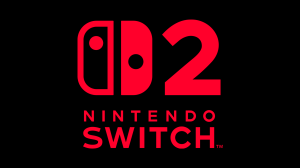After recreating the atomic monster with 2016’s Shin Godzilla, filmmakers Shinji Higuchi and Hideaki Anno set their sights on a full trilogy of modern remakes of iconic Japanese properties. Now, six years later, the first of these has finally arrived with Shin Ultraman, which takes the previous film’s realistic lens but applies it to the kaiju-fighting superhero with similar effect. There are moments where the wit and awe on display in Shin Godzilla shine through, but on the whole, it’s not as satisfying an experience due largely in part to covering similar ground but with less teeth for the targets of its satire.
Videos by ComicBook.com
Like the Ultraman stories told in Japanese films, television, and manga for decades, Shin Ultraman gives us a world that is suddenly besieged by kaiju and aliens with only a giant, shiny hero to fight them off once they become too powerful. In the same way that Shin Godzilla skewered government bureaucracy and hand-wringing, Shin Ultraman targets similar structures across the military and state departments, with characters delivering hilarious deadpan lines like, “For some reason kaiju only appear in Japan,” and, “Don’t answer (the phone), they’re just going to ask us to deal with that thing orbiting Earth.” It also manages to lampoon how easily duped our leaders can be, showing government officials take meetings with aliens despite all the others going poorly; while also reflecting on when it’s appropriate to stop listening to your leaders anyway.
Central to its cast, which isn’t as robust as the previous film, is Takumi Saitoh as Shinji Kaminaga, a member of the SSSP (S-Class Species Suppression Protocol) who becomes the host of Ultraman. Takumibrings a softness to the film, which works considering he’s tasked with playing a godlike hero in a human’s body. He’s flanked by Masami Nagasawa as Hiroko Asami, a fellow SSSP analyst that gets got in the extraterrestrial crossfire with some bizarre personal quirks, and Drive My Car‘s Hidetoshi Nishijima as SSSP leader Kimio Tamura. Both Nagasawa and Nishijima end up becoming the human heart of the film, selling its larger-than-life and silly premise with ease.
Many may be expecting a kaiju-bashing adventure out of Shin Ultraman, but it really only delivers that in the first half of its story, spending the rest of its time on the other extraterrestrials that make up the Ultraman mythos and how Earth/humans fit into a galactic conflict. The kaiju sequences on the whole are perhaps the best of the film, fun and concise action that also rework the hero and his monstrous enemies in a modern sense that manages to separate them from other modern kaiju remakes. Ultraman fighting other humanoid aliens in grand scale is less satisfying, perhaps signaling why we haven’t seen a Shin Godzilla follow-up where he’s fighting other Toho monsters; it’s awkward, and not in a way that plays into being self-referential to ’60s Ultraman production values.
There are times when Shin Ultraman feels like it’s modeling itself after an American equivalent, 2013’s Man of Steel, which is ironic since they share similar zeitgeist spaces in their respective countries. Zack Snyder’s reinvention of Superman sought to bring the character into the modern world with a grounded lens, which ultimately amounted to wanton destruction on a large, cinematic scale by virtue of it being possible with modern visual effects. Shin Ultraman harnesses this as well, leaning into its destruction as a side effect of its hero and forcing its human characters to sigh at the thought of cleaning it up. Where Shin Ultraman differs is that it digs deeper into the “what if this actually happened?” of it all, focusing on internal government conversations about what to do and less “wouldn’t it be cool if the superhero picked up a building?” In the end, it arrives at a cynical place as far as “what would happen?” but it fits into its larger parody of how the world works.
By the end, Shin Ultraman has made a case for existing alongside Shin Godzilla; it’s tackling similar subject matters but in different ways, to the same degree that Toho’s kaiju movies are different from Ultramans’ Kyodai Hero subgenre. Similar themes and visuals are used, but in the end, the two films are tackling different sides of human existence. The trouble for Shin Ultraman is that Shin Godzilla was such a massive homerun that it’s hard to compare, even with their similarities. Die-hard fans will find a lot to like about it and newcomers will even notice its charms, but it sadly doesn’t achieve the same heights that its predecessor was able to produce despite still being a fun, modern monster movie.
Rating: 3.5 out of 5
Shin Ultraman had its Texas premiere at Fantastic Fest. It does not yet have an American release date.








